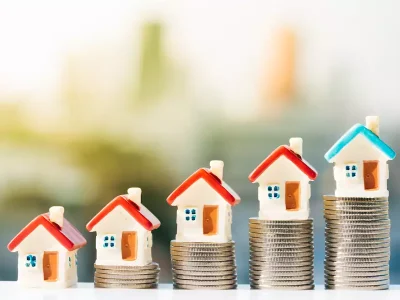Maintaining a property is about more than just fixing problems as they arise—it’s about creating an environment that feels safe, comfortable, and well cared for. Property owners often underestimate how much regular upkeep influences tenant happiness and long-term property value. Routine maintenance, when done consistently and strategically, can prevent costly repairs, maintain the property’s appearance, and strengthen tenant trust. For professional property managers, it’s not just a checklist item; it’s the foundation of sustainable operations and lasting value.
The Connection Between Maintenance and Property Value
A property’s value is directly tied to its condition. Buildings, like any other assets, depreciate over time—but routine maintenance slows that decline significantly. Regular inspections, minor repairs, and preventive measures extend the lifespan of structures, appliances, and amenities. For example, timely roof inspections can prevent leaks that lead to structural damage, while HVAC servicing ensures systems run efficiently, reducing energy costs and prolonging their life.
Owners who work with a professional property management service in Sevierville often notice that properties under consistent care maintain a higher market value. The curb appeal, cleanliness, and structural soundness of a property can make a strong impression on potential tenants or buyers. A well-maintained property reflects professionalism and reliability, increasing its desirability and resale potential.
Preventive Maintenance Reduces Long-Term Costs
Preventive maintenance may seem like an added expense, but it is an investment in long-term savings. Addressing small issues early helps avoid major repairs that can be far more expensive and disruptive. A leaking faucet, for example, can waste hundreds of gallons of water monthly if ignored. Similarly, small cracks in walls or flooring can escalate into structural damage over time.
Regular maintenance schedules—covering plumbing, electrical systems, pest control, and appliance checks—help ensure everything remains in working condition. Preventive care also reduces emergency calls, which tend to come with higher service fees and urgent repair costs. Beyond finances, this consistency creates a sense of dependability that benefits both property owners and tenants.
Tenant Satisfaction Through Consistent Upkeep
Tenants notice when property managers take maintenance seriously. A responsive approach to repairs and a proactive cleaning and maintenance routine can transform the tenant experience. Clean common areas, functional amenities, and prompt attention to maintenance requests contribute to a sense of comfort and respect. This directly impacts tenant satisfaction, encouraging longer lease renewals and reducing turnover.
When maintenance is neglected, frustration builds quickly. Even small inconveniences—like broken light fixtures or delayed repairs—can make tenants feel undervalued. On the other hand, a transparent maintenance plan with regular inspections and clear communication helps tenants feel reassured that their living environment is well-managed. Satisfied tenants are not only more likely to stay longer but also to take better care of the property themselves, minimizing damage and improving long-term upkeep.
The Importance of Professional Support
While some maintenance tasks can be handled by property owners, partnering with professionals brings consistency and expertise. Cleaning, HVAC servicing, plumbing, and electrical work often require specialized knowledge and tools to ensure proper care. For example, a team of professionals trained in property upkeep can identify early signs of wear and handle them efficiently before they escalate into bigger issues.
Routine cleaning also plays a critical role in maintenance. Dust buildup, clogged filters, and neglected surfaces can cause both functional and aesthetic problems. To maintain high standards of hygiene and property presentation, many property owners contact expert cleaners to handle periodic deep cleaning tasks. This not only supports tenant satisfaction but also preserves the long-term appeal and health of the property.
Building a Sustainable Maintenance Schedule
A well-structured maintenance plan should be proactive rather than reactive. The goal is to address potential issues before they cause inconvenience or financial strain. Establishing a clear maintenance calendar helps ensure regular attention to critical systems—such as plumbing, roofing, and HVAC—while also including seasonal tasks like gutter cleaning, pest control, and exterior upkeep.
For example, quarterly inspections might include checking smoke detectors, air filters, and appliances, while semiannual maintenance can focus on outdoor spaces, roofing, and insulation. Annual deep cleaning and safety assessments help maintain compliance and identify potential risks. Using digital tools or property management software can simplify tracking and reminders, ensuring no task is missed.
Sustainability also plays a role in modern property maintenance. Energy-efficient upgrades, water-saving fixtures, and eco-friendly cleaning practices reduce utility costs and appeal to environmentally conscious tenants. Over time, sustainable maintenance habits can increase both property value and tenant satisfaction, aligning operational efficiency with long-term responsibility.
Communication: The Key to Maintenance Success
Clear communication between property managers, tenants, and service providers is essential for effective maintenance. Tenants should always have an easy way to report issues, while property managers should respond promptly and transparently. Even when immediate repairs aren’t possible, timely updates build trust and understanding.
Establishing clear communication protocols also helps with budgeting and planning. Property owners can prioritize tasks based on urgency and cost, avoiding last-minute expenses. Regular updates and inspection reports keep everyone informed, minimizing confusion and improving accountability. Over time, this builds a culture of shared responsibility that benefits both owners and tenants.
Long-Term Benefits of Consistent Maintenance
Consistent maintenance creates a cycle of long-term value. Properties remain attractive, safe, and functional, leading to stable occupancy rates and reduced turnover. Tenants feel respected and cared for, which fosters loyalty and word-of-mouth referrals. Meanwhile, property owners enjoy peace of mind knowing that their investment is being preserved efficiently.
Additionally, documented maintenance histories can be valuable when selling or refinancing a property. Buyers and lenders often look favorably on properties with verifiable upkeep records, as this reduces perceived risk. Regular maintenance not only enhances the property’s current value but also safeguards its future potential.
Conclusion
Routine maintenance is the backbone of successful property management. It’s not just about fixing things—it’s about preserving value, ensuring safety, and creating environments where tenants feel comfortable and cared for. From preventive repairs to professional cleaning and scheduled inspections, each effort contributes to a property’s long-term success.
For property owners and managers, maintaining a consistent maintenance strategy means fewer emergencies, happier tenants, and stronger asset value over time. Prioritizing regular care today ensures the property remains a valuable, trusted investment for years to come.



Comments